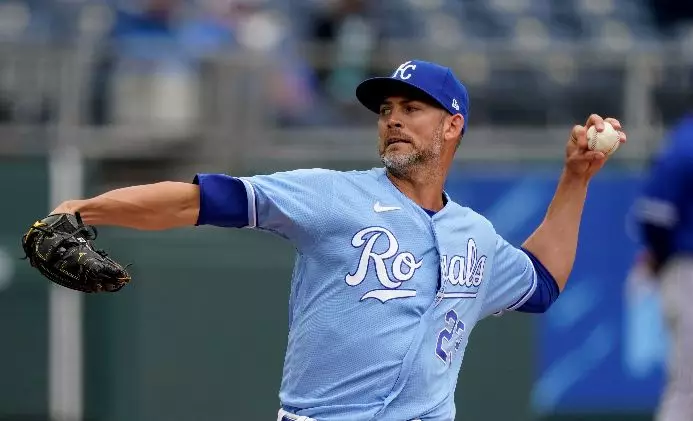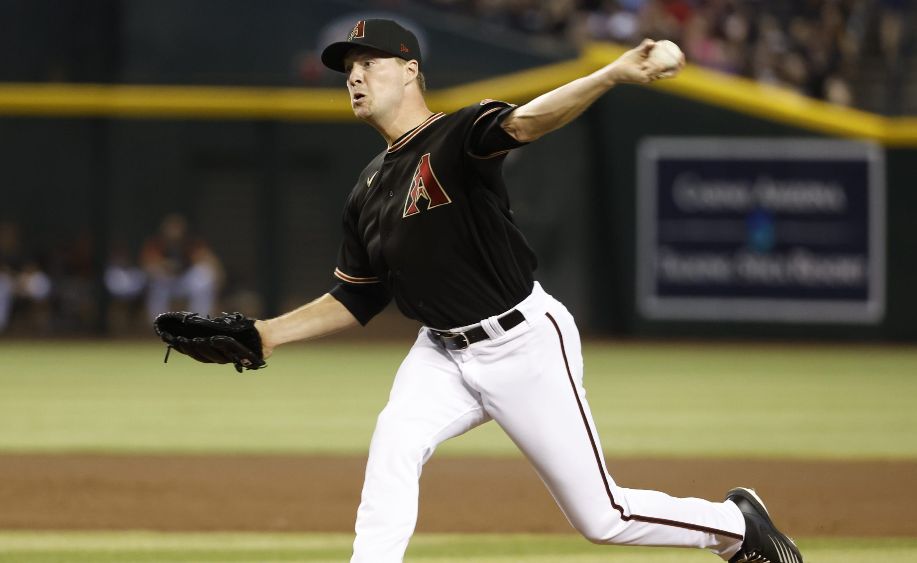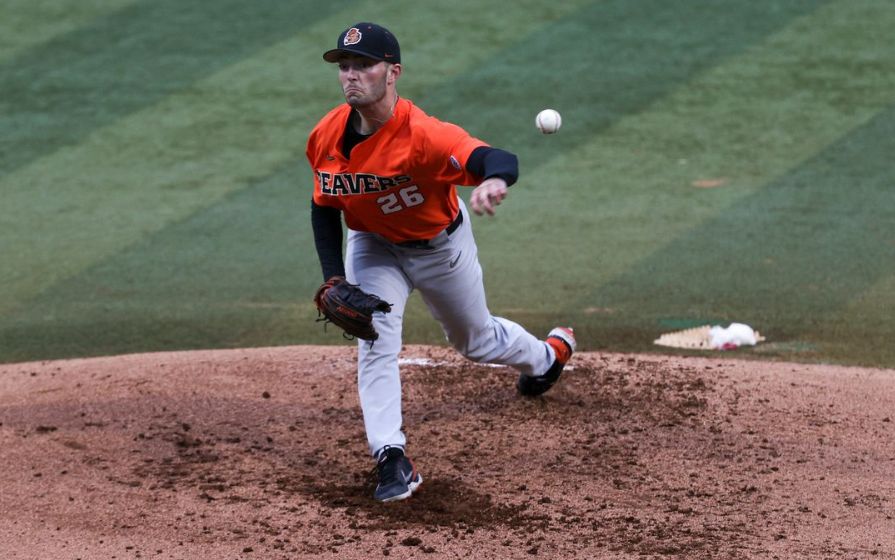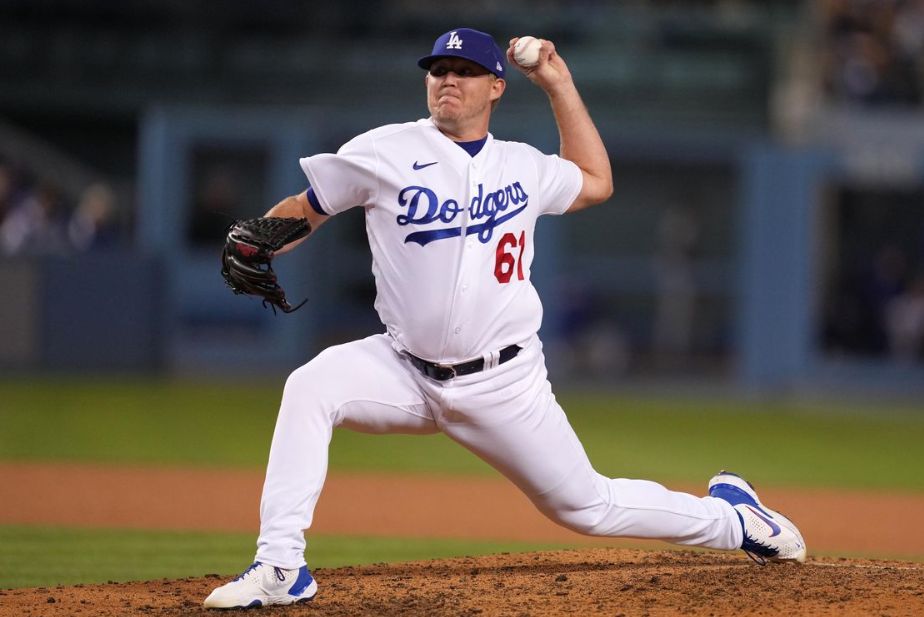Baseball is a game full of strategies and techniques, and the role of a pitcher is one of the most crucial ones. The throwing hand sets a pitcher apart as one key factor, either left-handed (LHP) or right-handed (RHP). But what exactly does LHP mean in baseball, and what are the differences between LHP and RHP pitchers?
In baseball, a left-handed pitcher (LHP) throws the ball with their left hand from the pitcher’s mound to home plate. LHPs are rare in baseball, making up only 10-12% of all pitchers. These unique pitchers have a distinct advantage on the field, with a different arm angle that can confuse opposing hitters.
So, are you ready to delve into the fascinating world of left-handed pitchers in baseball? Join us as we explore the world of LHPs and discover why they are such valuable assets to any baseball team.

What Does ‘LHP’ Mean in Baseball?
Content Summery
LHP stands for Left-Handed Pitcher, a term that describes a pitcher who throws the ball with his left hand to execute a cheese in baseball. Do you need clarification on my point? Let me explain to you step by step.
- A player who throws the ball to get the batter out is called a pitcher in baseball.
- The pitcher stands on the mound and faces the batter in the batter’s box.
- The pitcher throws the ball toward home plate, and the batter attempts to strike it.
In baseball, there are two varieties of pitchers:
- Those who throw the ball with their right hand. They are called RHP.
- And those who throw with their left. (Known as LHP).
In summary, LHP and RHP in baseball are two types of pitchers based on their handedness. Did you ever hear that LHP has an advantage over RHP in the game? I heard too. Let’s explore this myth with some facts.
Exploring the Left-Handed Specialities in Baseball
Left-handed players have an edge in baseball due to their unique perspective on the field and how they throw and hit the ball. According to one of the greatest baseball player of all time, Mickey Mantle, “Left-handers are more difficult to get out.”
Now here might come a question in your mind.
What Gives Left-Handed Pitchers an Advantage in Baseball?
Left-handed pitchers have been making their mark on the baseball field for generations. From Sandy Koufax to CC Sabathia, these players have proven to be some of the game’s most dominant and effective pitchers. But why do left-handers seem to have such a clear advantage in baseball?
Here are the key factors that give LHP a distinct edge on the mound:
Throwing Motion And Standing Position
One of the main advantages of LHP is its throwing motion because lefties are in the minority. Left-handed pitchers give right-handed hitters a psychological edge because they are less used to facing them, eliminating a major chance for any knock in the baseball game.
Additionally, the position of a left-handed pitcher is different from that of a right-handed pitcher, making it harder for right-handed hitters to pick up the ball and react quickly.
Psychological Edge
Left-handed pitchers also have a psychological edge in baseball. When right-handed hitters step up to the plate against a left-hander, they are forced to adjust to a different look and style because they are used to facing right-handed pitching.
This can disrupt their timing and cause them to make mistakes, giving the LHP a significant advantage.
Unconventional Style
Another factor that gives LHP an advantage in baseball is their unconventional style. Left-handers often have a more creative and unpredictable approach to pitching, making them more difficult to hit. Many coaches use the double-switch technique to get a LHP on the ground when situations get tougher.
A left-handed pitcher might employ a sweeping slider or a hard-breaking curveball to throw off right-handed hitters unfamiliar with these pitches.
This can throw off the hitter’s timing and result in more strikeouts and weak contact.

What Makes Left-Handed Pitchers Rare?
It’s a well-known fact that left-handed players are a minority in baseball. According to states, only 10% of players in Major League Baseball (MLB) are left-handed.
However, when it comes to pitchers, the number drops even lower to just 1 in every 4 pitchers being left-handed. This begs the question, why are left-handed pitchers so rare in baseball?
Left-handed pitchers are relatively rare in Major League Baseball. Because of:
- Historical discrimination against left-handed pitchers in the 19th century led to many switching to throwing with their right hand.
- Right-handed batters have an advantage when facing a left-handed pitcher, as the ball travels across the plate toward their body.
- Scarcity of left-handed pitchers due to a lack of left-handed coaching, as many young players receive their first lessons from right-handed parents or adults.
Despite the lower number of lefties, there is still a high demand for left-handed pitchers because they can take advantage of an opposing team’s predominantly right-handed lineup.
Understanding The Impact of LHPs On A Team’s Strategy
Left-handed pitchers bring unique advantages to the table, making them valuable assets to any team. LHPs can throw breaking pitches with greater movement toward the plate, making it difficult for right-handed hitters to make contact. Additionally, LHPs often have the advantage of having a slightly shorter distance from the mound to the home plate, allowing them to control the inner part of the plate easily.
LHPs also can neutralize the opposing team’s right-handed power hitters. By utilizing their natural arm angle, LHPs can disrupt the timing of right-handed hitters, making it difficult for them to drive the ball with power.
Bonus: Do You Know What Baseball Players Wear On Their Thumbs?
Utilizing LHPs In Different Situations
LHPs can be used in various situations to maximize their impact on a team’s success. Here are a few examples of how LHPs are utilized in the game of baseball:
Starting Pitchers
LHPs can be effective as starting pitchers, bringing a unique skill set to the mound every five days. These pitchers often can keep the opposing team’s right-handed hitters off balance, leading to fewer hits and runs scored.
Relievers
LHPs can also be effective relievers, coming into the game in key situations to face the opposing team’s most dangerous right-handed hitters. These pitchers bring a new look to the plate, making it difficult for right-handed hitters to adjust and get into a rhythm.
Matchup Specialists
LHPs can also be used as matchup specialists, coming into the game specifically to face one or two key right-handed hitters. This type of usage allows the pitcher to maximize their impact on the game, as they are utilized in high-leverage situations.

Examining the Evidence: Studies On The Performance Of LHP vs. RHP
The performance of left-handed pitchers (LHP) versus right-handed pitchers (RHP) is studied extensively by baseball researchers.
Generally, the consensus is that LHP has an advantage over RHP due to its ability to create more deceptive pitches and angles when pitching to batters.
Do Left-Handed Pitchers Perform Better Than Right-Handed Pitchers?
Studies have examined the outcomes of games featuring LHP vs. RHP to measure this advantage and assess its impact on team performance.
- In Major League Baseball, left-handed pitchers make up about 20-25% of all pitchers.
- A study by ESPN in 2010 found that left-handed pitchers had a slightly lower batting average against left-handed hitters (.235) compared to right-handed pitchers (.247).
- In contrast, a study by the Society for American Baseball Research in 2006 found no significant difference in performance between left- and right-handed pitchers.
- One study conducted by Baseball Prospectus in 2015 found that teams with LHP starting pitchers won 54% of their games, compared to only 46% for those with RHP starters.
- This difference was most pronounced in Interleague play, where teams with LHP starters had an 8% higher winning percentage than those with RHP starters.
- A more recent 2019 study from FiveThirtyEight analyzed data from MLB games between 2008 and 2018 and found similar results regarding the performance of LHP vs. RHP. This study found that teams fielding LHPs as starters won 57% of their games compared to 43% for teams starting RHPs.
Overall, the evidence seems clear: having LHP on your team gives you a competitive edge over teams relying solely on RHPs.
Some studies suggest that the advantage of LHPs in pitching matchups and team performance is slight. However, there is no denying that LHPs can provide a distinct advantage overall.

The Challenges for a Left-Handed Pitcher in Baseball
As with any aspect of the game, being a left-handed pitcher has both advantages and disadvantages. These include:
- Limited availability: There are fewer left-handed pitchers in the game, making it harder for teams to find quality lefties to fill out their rosters.
- Injuries: Lefties often suffer from arm and shoulder injuries due to the unusual stresses placed on their bodies when throwing.
- Batting: Left-handed pitchers typically struggle at the plate, facing right-handed pitchers, and must adjust their swings accordingly.
- Lack of Learning Resources: With fewer left-handed pitchers in the game, some fewer coaches and trainers specialize in working with this unique group of players.
How Can LHP Pitchers Improve Their Game?
Left-handed pitchers (LHP) in Major League Baseball (MLB) face a unique challenge, as lefties make up only 15% of the game’s pitchers. To be successful on the mound, LHPs need to use their pitch repertoire and craftiness to outsmart righties. Additionally, we’ve some more tips that every LHP should follow:
- LHPs need to use pitch variety and deception to succeed.
- Mixing off-speed pitches with a fastball can keep hitters guessing.
- Using curveballs, sliders, and changeups can help LHPs achieve success.
- Throwing from various arm angles and around the zone can improve performance.
- Working closely with the catcher is important for LHPs to understand what pitches are working best.
- Improving mechanics and timing can help LHPs become successful.LHPs can improve their game with practice and hard work on technique.
- Familiarizing yourself with different wrinkles can make a difference between winning and losing games.

Frequently Asked Questions by Baseball Fans
Why do lefties not play shortstop?
Left-handed players can play shortstop, but it is more common for right-handers due to the direction of throws to first base.
Some famous left-handed shortstops include Cal Ripken Jr., Miguel Tejada, Robin Yount, Alex Rodriguez, Derek Jeter, and Jimmy Rollins. These players have overcome the challenges and have become successful MLB players.
Why Is It Harder for Lefties to Hit Lefties?
It is harder for lefties to hit lefties because they face a pitcher throwing with the same arm. This makes it difficult to pick up the ball’s release and trajectory.
Left-handed hitters are less common in the game, leading to fewer opportunities to face left-handed pitchers and sharpen their skills. Additionally, this creates a challenge for left-handed hitters to improve against that type of pitcher.
Why Do Lefties Throw Slower with More Movement?
Lefties throw slower because they use a different arm slot than righties, causing the ball to move differently in the air. This can create more movement and break on the ball, making it more difficult for the batter to hit. The slower velocity also gives fielders more time to react to the ball.
What is the best position for a lefty in baseball?
The best position for a left-handed player in baseball is usually the first base, left field, or pitcher. These positions allow for maximum use of their dominant hand and provide better opportunities for success. Ultimately, the best position for a lefty will depend on their skills and abilities.
Final Thoughts
In baseball, LHP stands for Left-Handed Pitcher. LHPs are rare and makeup only 10-12% of all pitchers. They have a distinct advantage on the field due to a different arm angle and psychological edge over right-handed hitters.
Left-handers often have a more creative and unpredictable approach to pitching, making them more difficult to hit.
